Recent Blog Posts
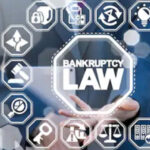
What Happens to Non-Exempt Property in Chapter 13 Bankruptcy?
If you have had any family members or friends who filed for bankruptcy, you may only know about Chapter 7 bankruptcy, which is a type of liquidation bankruptcy. In a liquidation bankruptcy, the debtor can claim a range of assets as “exempt” under the Florida Statutes, which means those exempt assets will not be… Read More »
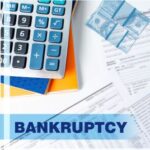
How Does a Reorganization Plan Work in Chapter 11 Bankruptcy?
Chapter 11 bankruptcy is a type of reorganization bankruptcy that is commonly used by businesses, although it is occasionally filed by individuals, too. As a type of reorganization bankruptcy, Chapter 11 bankruptcy does not involve asset liquidation but instead involves a reorganization plan through which the debtor repays creditors over a period of time…. Read More »

Can Bankruptcy Unfreeze My Checking Account?
Has your Florida bank account been frozen as a result of a creditor obtaining a judgment against you for a debt you owe? If you are considering the possibility of bankruptcy, you should know that your filing is likely to result in your account being unfrozen and any existing garnishment orders being halted due… Read More »

Medical Debt and Personal Bankruptcy in 2025: What to Know
Medical debt has been a significant issue for Floridians for years now, and as of early 2025, it continues to be a problem for debtors in Florida and across the country. Indeed, according to LendingTree, about 55 percent of Americans have incurred medical debt that they have had to repay, and nearly 30 percent… Read More »
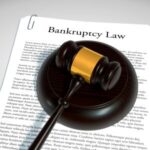
Credit Card Debt Reaches Record High
Struggling with credit card debt is a common reason that Florida residents file for consumer bankruptcy. While credit card debt is not typically the only debt that bankruptcy filers are dealing with when they decide to file for Chapter 7 or Chapter 13 bankruptcy in South Florida, it is frequently one of the reasons,… Read More »
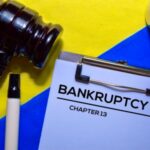
Can I Make Changes to My Chapter 13 Bankruptcy Plan?
Chapter 13 bankruptcy is the most common type of reorganization bankruptcy for individual debtors, and it requires the debtor to have a repayment plan approved as part of their Chapter 13 case. For most individual debtors (or for a married couple filing jointly), a Chapter 13 case will involve a repayment plan that lasts… Read More »

Personal Income Taxes and Bankruptcy: Things to Consider
Each year as Florida residents begin to think about their income taxes and the filing deadline in April, many of those same residents are also considering the potential issues that may arise with their taxes if they are considering a bankruptcy filing. Whether you have unpaid income tax debt, or you are expecting an… Read More »
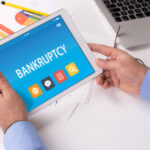
Debt Consolidation with a Personal Loan or Personal Bankruptcy?
Personal loans are among the leading ways in which Florida residents and Americans more broadly attempt to consolidate their debt. According to data from the Federal Reserve, personal loans are used frequently to consolidate credit card debt and to pay off medical bills. By the end of 2023, personal loans accounted for approximately 10… Read More »

Facts About Credit Card Debt and Consumer Bankruptcy
While it is difficult to pinpoint with certainty how often credit card debt alone leads to consumer bankruptcy filings, credit card debt is a commonly cited factor in a majority of Chapter 7 bankruptcy cases, as well as in Chapter 13 bankruptcy filings. If you are currently struggling with credit card debt and wondering… Read More »

Can Bankruptcy Clear that Income Tax Debt I Owe This Year?
If you have already been struggling with debt and making monthly payments to creditors, finding out that you owe even more debt in personal income tax can be demoralizing and devastating. In the months around tax time, Florida residents often go to tax preparers or use online software to find out if they can… Read More »



